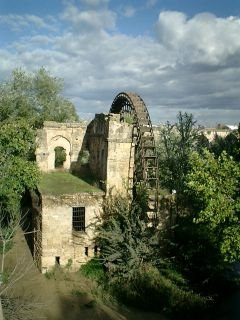
Un enigma que se encuentra en una entrevista a Hugh Thomas, el hispanista inglés:
El periodista: En España muchos se preguntan el por qué de tanto éxito a los hispanistas británicos. ¿Se permitiría la sociedad británica que autores foráneos les contarán su historia?
Thomas: Los historiadores españoles serán muy bien venidos si alguien escribe algo sobre lo que ha pasado en nuestro país. Pero, con la excepción de Salvador de Madariaga, es verdad que no ha habido muchos. No se explica muy bien por qué había tantos ingleses hispanistas. Pero no hemos creado escuela: Elliot (soy amigo pero no su alumno), Paul Preston (fue antiguo alumno mío), Raymond Carr (somos colegas). En general, hemos llegado en 'barcos' distintos. Hemos comenzado nuestro 'ataque' por varios sitios pero no organizados como 'flota'.
Posdata. Raymond Carr está preocupado por "la 'falta de interés académico' que [España] tiene respecto a la Historia de Inglaterra, una cuestión que no es recíproca ya que, según señaló, en su país natal hay numerosos catedráticos especializados en Historia de España".
Aún más. Me preguntaba sobre Felipe Fernández-Armesto. Me lo impresionó mucho como historiador, sobre todo. Hasta ahora he leído sólo su libro corto, Las Americas, y su ensayo sobre La Guerra Civil. Son llenos de ideas sorprendentes y interesantes. Su nombre es español pero su prosa inglés es excelente: muestra un nivel literario muy alto y particular. Hoy supe que su madre era inglesa, su formación igualmente. Escribió una historia de la Gran Armada, que se puso en contra de la tradición de la victoria gloriosa de Inglaterra.
Un par de párafos desde una entrevista fascinante:
El entrevistador: I wonder how your Spanishness affected your early choice of specialising in the history of Spain’s Golden Age?
FFA: Belonging to two cultures is very important to me and, because I am immersed in the English half, I tend to Romanticise and idealise the Spanish side. As a deracinated Spaniard, I needed to tend Spanish roots. But it has not influenced the period I chose, and my doctoral thesis was on the Canary Islands, which I have no atavistic links to at all.
EE: It is interesting that you wrote a book - Armada - that went against the received idea of a dramatic English victory.
FFA: My resentment with English complacency about the Armada victory certainly informs the book. I began the book with an anecdote of my school days: the embarrassment of my name. You were made to feel as though the historical record demonstrated the inferiority of your stock; something that I think is quite unjustified from the true history of the Armada. At the time the Spanish monarchy was outstandingly efficient, the logistical achievements of the Armada were staggering. English education, I think, is particularly narrow; narrow-minded and complacent.
EE: It is worth mentioning Felipe’s accent at this point. He sounds how I imagine P.G. Wodehouse’s Psmith to sound - a rich, humorous, public-schooled English voice. When speaking Spanish the inflection and the tenor is completely different - serious and deep. The same divergence could be extended to his responses, which flit between a barely suppressed hilarity to the utmost gravity in seconds.
7 comments:
¡Absolutamente!
Bueno, sí, Jorge, pero ¿cuál era la pregunta?
para ser o no ser
zijn of niet zijn
Un placer leerte...
Besos.
DIARIO DE GUERRA
4
Enredada en las zarzas,
la hoja de un periódico:
una muchacha anuncia
una mágica crema contra el vello.
La realidad es un algo en el pasado
Gracias por otro misterio, Jorge. (Por cierto, hoy he tenido un sueño de la primavera en Coogee.)
Gracias por la visita, muralla.
Post a Comment